#essay writer for australia
Explore tagged Tumblr posts
Text
https://www.theassignmenthelpline.com/ca.html
#essay writer for australia#essay outline help#Dissertation Proofreading Services#buy term papers online
0 notes
Text
The end of the Universe.
Not a book review, more an essay on what the books brought to me. Warning for longposting.
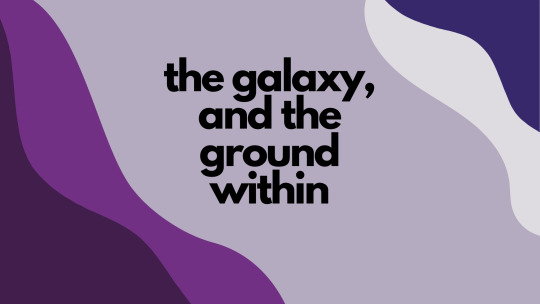
So recently I finished a book by one of my favourite authors, Becky Chambers. "The galaxy, and the ground within" was the final book in her Wayfarers series, more a set of loosely connected stories told in one collective universe than the typical linked series of books detailing one main story. Compared to some of the other stories in the series that I read years earlier, I cannot say that this felt as impactful or momentous when I finished it, but that isn’t to say it lacked meaning to me either.
Chambers writes stories that, in my opinion, grasp beautifully the intricacy of living in a society and being alive. To a greater extent, I would argue that her writing is about what it means to be human. The first book of hers that I read was actually not the first in the series. I will come back to "the galaxy and the ground within" later, but I want to talk about one of her earlier books first, the one that really hit home for me and changed the way I saw the world. I first picked up “A closed and common orbit”, a story about an AI designed to assist with living on a ship being transplanted into a human-shaped body. She isn’t recognised by most as a real person with rights or her own autonomy, and she doesn’t identify with, or feel comfortable with the body she now inhabits. She has no legal papers that can easily apply to her or her body, limited capacity to travel because of a lack of documents, and generally no systemic support from the government. And underlying all that, she feels adrift in life now that she is no longer able to fulfil the task she was originally programmed for and is trying to seek meaning in her existence.
To me, the trans metaphor was very clear from both the language used in the book, and the shape of the concept it was presented in. I thought it was both a beautiful way of shedding light on the issue, while also changing the perspective just enough to possibly circumvent the cognitive dissonance that comes with our pre-established notions with modern language involving the trans community and transgender people. Something that most people aren’t consciously aware of is how much phrasing, word choice, and packaging can affect or sway judgement based on established ideals. By simply changing how an idea is presented or phrased, two completely different reactions can be obtained from the same people. I felt that this was cleverly used in the series to present the issue and the struggle of just trying to fit into life like everyone else in a relatable and understandable fashion. I don't think that it should be a struggle that needs to be explained, but there it is.
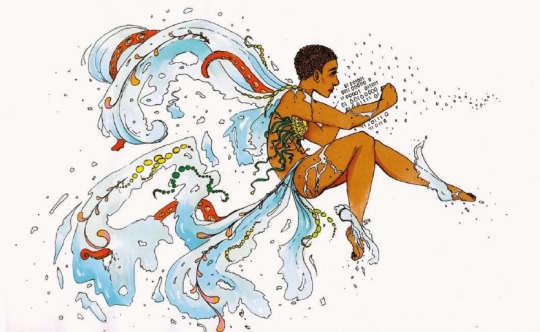
We follow Lovelace, the AI, in choosing a new name for herself, through her struggles in trying to figure out her place in the world without simply taking orders from others, and her struggles with feeling comfortable with her body. Lovelace, or Sidra, as she renames herself, repeatedly expresses a disconnect from the body she inhabits and her mind. The language used would be very familiar to people with similar struggles, but still coherent and easily parseable to a reader without that knowledge. The wording highlighted the clear disconnect between Sidra, the identity we were following, and the body she lived in to mimic a human. She didn’t feel comfortable or at home in the body she used, and made adjustments where she could to her environment instead to help her feel more comfortable. She couldn’t change the circumstances of her creation, but she could learn to unwire her old programming and form new habits of her choice, accepting as well the consequences of those choices. At one point in the story, it takes giving up control of the body to return to controlling a ship, Sidra’s original purpose and a goal she strives towards for most of the book before Sidra comes to appreciate what having a physical human body allows her to do. It is the first moment in the book that Sidra identifies the body she had been using as her own, and not just a form made for her, signifying an shift in thinking. Additionally, as a mass produced AI on the market, Lovelace, now Sidra, was being exposed to things and experiences beyond the imagining of a shipboard computer. Through the text, I sensed a certain connection as well to people who at some point in their lives are made to step out of their small corner of the world and are shown a whole new life that they never imagined possible and now have to readjust their way of thinking about the world. Our world has certain trends, cultures, and expectations of us for whatever roles we were born into. Almost everything is set up for us to slide into these roles and not change, but not everyone can fit in neatly into the boxes society has laid out for us. Sometimes by choice, sometimes by circumstance.
The book doesn’t just tell Sidra’s story of learning about herself beyond her core programming, but there are other quieter stories in the background. But they all weave together to become one tapestry of lives and experiences that constitutes living on a society with other people and making the space around them more comfortable and better for people. Pepper goes to great lengths to help Sidra adjust to being human, and Sidra makes a friend named Tak who introduces her to tattooing, to parties, and helps her discover herself. Pepper’s fix-it job doesn’t work strictly by money, she also trades in simple favours such as food discounts and medical checkups in return for helping them out. There’s a general air in the stories of how although there are always people with less pleasant intentions or with less common sense than is good for them, most people are kind and making their way through life by making the space around them better, and helping others in the process.

Which brings me back to "the galaxy, and the ground within". In this book, Chambers writes us a simple story on the surface about a group of weary travelers who get stuck at what was meant to be a pitstop on their travels when a tech failure shuts down all planetary travel. Three travelers and their two hosts are stuck together in what is basically a small hotel with nothing to do other than twiddle their thumbs and wait for the authorities to do their thing.
That brings me to the diversity in the series. Chambers uses the canvas of a galaxy-wide community to introduce diversity of cultures and race/species to us, but even within species there is diversity based on their origins, their parents, and their personal life choices. There is a great deal of emphasis throughout the series placed on the importance and impact of the choices one person makes about how they want to live their life. I wouldn't say it is more emphasised in this story than others, but I think you cannot talk about a Chambers book in her Wayfarers universe without praising the racial and cultural diversity.
When we talk about diversity and representation in our current media, it is still a frustrating conversation with people at times about why they should see different faces and identities there. But something that I've heard across a range of ages and generations from people about science fiction is "Where are all the aliens?" or "Why aren't there more aliens?" The cognitive dissonance I mentioned earlier really comes to bear here, and Chambers makes full use of it with her cast. Even for culturally savvy and well-travelled people as our main cast in this story, we still see that the world they live in is so big that they still don't fully and completely understand everything. These are people who are well travelled, well informed, and people who even make a point to go out of their way to know more about other places, cultures, and people, and they still acknowledge the massive gap in their knowledge of each other's races when they meet.
Some characters lean heavier into their culture of birth, some mix fluidly wherever they go without a particular distinct culture that they call their own, some pick up things from all the places they travel, some change their minds as they grow and see new things and decide to leave some things of their past behind them. But ultimately people decide how they want to live and who they want to be, and others make the choice to respect that. People understand, in this universe, that you cannot live without encountering people very different from yourself and that accommodations must be made for them. Some amount of thoughtfulness is expressed by everyone to at least take into consideration that different people need different things, and that even within a race, no two people are the same. Not everyone is going to agree or like some differences, but ultimately a conflict also isn’t going to resolve anything and non-confrontational methods are just preferable, so people make spaces for different things or make spaces as accommodating as possible. It’s a philosophy I firmly believe we could do well to adopt and remember today.
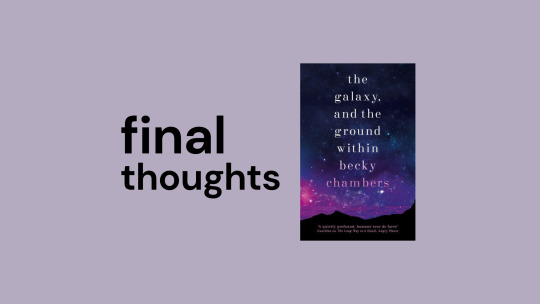
One last thing that I came to realise after some thought is perhaps a final click of why I like reading Chamber’s books so much. In her works, her characters communicate with each other in a way I feel we should all do. Sometimes there are gaps intentionally written in the conversation where the wrong things are said, or not said, sometimes things still don’t work out even after all the words have been said with careful thought, or sometimes people still don’t agree at the end, but her characters still talk to each other when they have a problem and do their best to clearly communicate things and clear up differences and clarify to reduce misunderstandings. Even if they are of different opinions, the characters understand that at least effort was put in to consider the thoughts of the others. In a universe as diverse and far ranging as theirs, they need to do their best to be clear and precise in what they mean, while accounting for differences in language and culture and levels of understanding; not to simply expect or demand everyone else rise up to their level of comprehension, but to raise others up together with them. They vocalise their problems, because acknowledging an issue openly is the first step to getting the problem resolved between them. They ask for clarification and ask for forgiveness when there is a mistake, because mistakes happen and that is understandable and easily forgivable. But to commit a misdeed intentionally when it could have been cleared up or done with more thoughtfulness is a much harsher mark against you. As someone who spends so much time listening to others, this is something I wish we did more often. Kindness and thoughtfulness aren’t a high expectation, and they shouldn’t be in a society so diverse. We shouldn't need to touch the stars and populate the galaxy to realise that we need to be kind to ourselves and our fellow neighbours, whoever they may be and wherever they may come from.
If I've omitted mentioning stuff from the books or avoided specifics, please understand that this has been largely just a rambling loose connection of thoughts from me that I spent a few minutes making graphics for because I love the colour purple and the graphics make me happy. I had a lot of thoughts rattling around after finishing the final book in a universe I loved existing in so much. I feel happier for having written this all our and put it out there, so yeah.
#the galaxy and the ground within#becky chambers#book review#reading#book blog#review on humanity#my writing#essay#spilled thoughts#humans are space orcs#humanity#human connection#earth is space australia#writeblr#writers on tumblr#thoughts#wanderer's thoughts#spilled words#writing#spilled ink#review#books and reading#book recommendations#book thoughts#human behaviour#being human#human nature#humans#sci fi#science fiction
20 notes
·
View notes
Text
Sunday's Best 16.07.23
My best thoughts of the week, collected and presented to you for your Sunday reading. This week: physical touch as a love language, my new cyclist persona, and how I got scammed by a group of teenagers. Touchy-feely friends I love being touched. Let me clarify. I love being touched by the people I love, specifically when it occurs and evolves in friendships. It’s the small physical gestures…
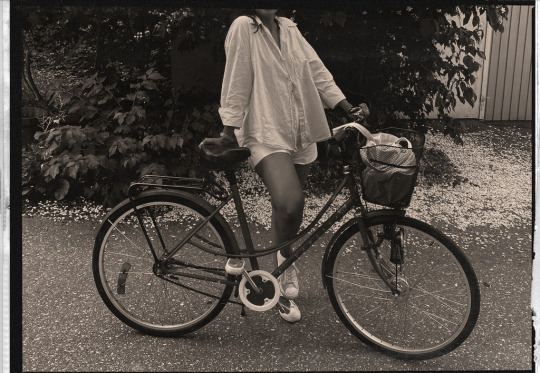
View On WordPress
#australia#australian writer#creative writer#Creative Writing#Dyson airwrap#essay#featured#life#love language#personal essay#rant#Stockholm
3 notes
·
View notes
Text
What if you could get your Essays and Assignments done easily ? All you need is the right App at the right time!
https://eliteassignmentshelp.com
More youtube videos ➡️ Youtube
LINKS & RESOURCES, CHAT WITH US!
Email | iOS App | Android App | Link TreeWebsite | Instagram | Tiktok | Twitter | Pininterest | Reddit | Medium | Tumblr | Youtube | Facebook| LinkedIn
#students #essay #essaywriting #assignment #college
#Assignments #Help #thesis #essay #semester #IT #english #exam #student #university #studentlife #studentproblems #synopsis #internationalstudent
#Elite #Assignments #Help #thesis #essay #semester #IT #English #Exam #Student #university #studentlife #studentproblems #synopsis #internationalstudent #student #university #studentlife #studentproblems #internationalstudent
#canada #canadaimmigration #immigrants #canadasim #canadiansim #mobile #iphoneincanada #comedy #internationalstudents #students
#motivation #canada #winters #snow #students #internationalstudents #usa #fyp #foryou #trending #viral
#essaydue#essay#college#essays#help writing#student#school#university#writing#assignment help online#australia#photo essay#101 essays that will change the way you think#evel knievel’s son robbie shared moving essay on growing up with iconic stuntman & joining show aged 8 before death#writer#essay collection#authors#publishing#substack
2 notes
·
View notes
Text
Hi everyone!
My name is Mia, I'm a soon-to-be 30yo comic artist and essayist living on unceded Wurundjeri Woi Wurrung and Boon Wurrung country aka Melbourne, Australia. My pronouns are she/her. Here's my website. You can also find me on Twitter and Instagram.
Most of my work can be found on my Medium. You can support me by buying my e-zines off Gumroad or subscribing to my Patreon, although fair warning that my updates are currently intermittent and my webcomic is on hiatus.
Here are some of my comics and writing:
SAMSARA DREAMIN'

My action-horror feel-bad epic webcomic about a trans girl and her psycho wolf boy on the lam in Buddhist hell. Currently on hiatus due to work/life balance with plans to resume around October. Please check the content warning in the About page.
APPLE/SEED

A sci-fi comic about life under neoliberalism and talking to your ex. Made for Liminal Magazine.
Mount Macedon Hiking Guide


This is the one that blew up it's probably how you got here lol. A how-to guide to climbing mountains and grieving the dead. Made for the Emerging Writers' Festival.
Lone Shadow
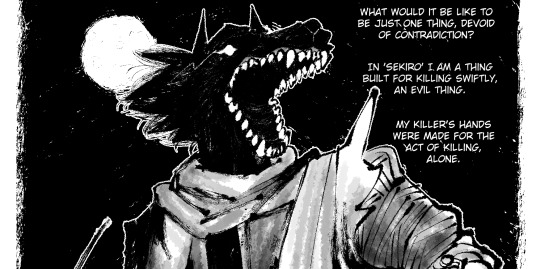
My Reuben Award-nominated comic about Sekiro and queer phenomenology. A companion piece with YOU, DEFEATED, an essay on Dark Souls and trans grief.
Winner Winner
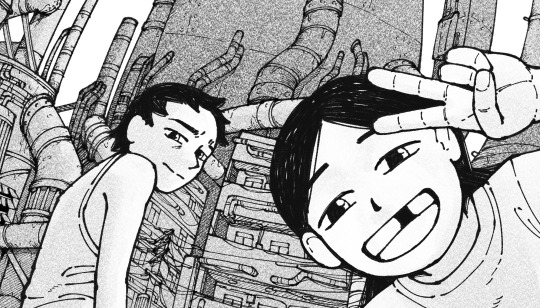
A comic about children at the end of civilisation, inspired by Taiyo Matsumoto and Katsuhiro Otomo.
240 notes
·
View notes
Text
0 notes
Text
Discover How to Write a Perfect Narrative Essay and Win Hearts?

Narrative essays offer a unique opportunity to captivate readers with compelling stories that resonate on a personal level. In this blog post, we'll explore the essentials of crafting a perfect narrative essay and how narrative writing help in Australia from the best Australian writers can elevate your storytelling to new heights.
Understanding Narrative Essays:
At its core, a narrative essay is a form of creative nonfiction that tells a story. Unlike other types of essays, narrative essays allow you to express yourself in a more personal and subjective manner. They often incorporate elements such as characters, settings, plot, and dialogue to engage readers and evoke emotions.
Choosing a Topic:
The key to writing a perfect narrative essay is selecting a topic that resonates with you personally. Choose a story from your own life experiences that has shaped you in some way or taught you a valuable lesson.
Crafting a Compelling Introduction:
Start your narrative essay with a captivating introduction that sets the scene and grabs the reader's attention. Consider beginning with a vivid description, an intriguing question, or a thought-provoking anecdote to draw readers into your story.
Developing Characters and Setting:
As you delve into the body of your narrative essay, focus on developing vivid characters and setting. Describe your characters in detail, including their appearance, personality traits, and motivations. Set the scene by providing rich sensory details that immerse readers in the world of your story.
Creating a Engaging Plot:
Every narrative essay needs a compelling plot that unfolds in a clear and engaging manner. Establish a central conflict or dilemma early on and build tension as the story progresses. Include key events, challenges, and turning points that drive the narrative forward and keep readers invested.
Using Dialogue Effectively:
Dialogue can bring your narrative essay to life by adding authenticity and depth to your characters. Use dialogue sparingly but strategically to reveal character relationships, advance the plot, and convey emotions.
Employing Descriptive Language:
Descriptive language is essential for creating vivid imagery and evoking emotions in your narrative essay. Use sensory details, figurative language, and descriptive imagery to paint a vivid picture for readers and immerse them in your story.
Crafting a Memorable Conclusion:
End your narrative essay with a powerful conclusion that leaves a lasting impression on readers. Reflect on the significance of your story and tie up any loose ends. Consider ending with a thought-provoking statement or a memorable takeaway that resonates with readers.
Seeking Narrative Essay Help in Australia:
If you're struggling to write a perfect narrative essay, consider seeking narrative writing help in Australia from the Best Australian Writers. Professional writers can offer expert guidance, feedback, and support to help you craft a compelling narrative that wins hearts.
Conclusion:
Mastering the art of narrative essay writing requires creativity, attention to detail, and a deep understanding of storytelling techniques. By following the tips outlined in this blog post and seeking narrative essay help in Australia from the best Australian writers, you can elevate your narrative writing skills and create essays that resonate with readers on a profound level.
0 notes
Text
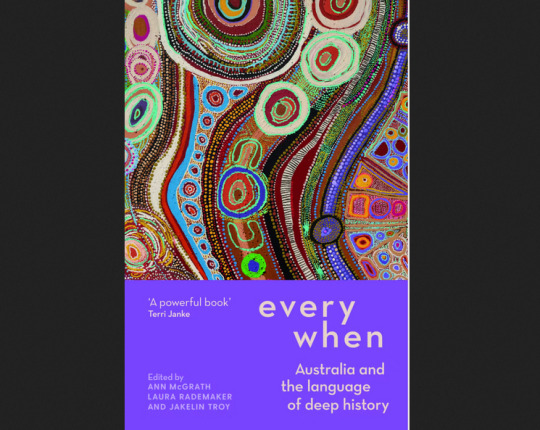



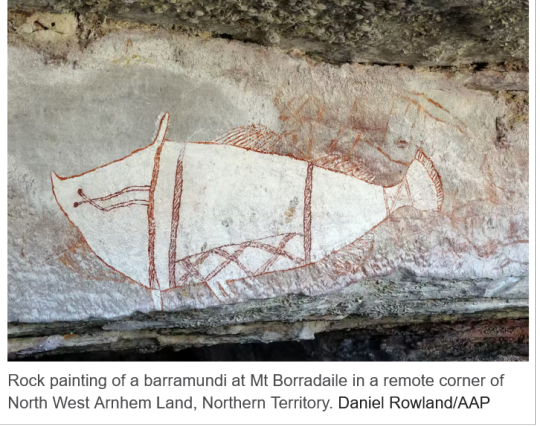
This might feel slim by today’s understanding of Indigenous ancientness, but in the 1950s and 1960s, scientific dating confirmed Australia’s human history reached well beyond any sort of written archival record. Moving Australian History into the deep past, thousands of years before colonisation brought with it Western forms of history-making, established a radical new timescale for the discipline. [...] As well as comprehending that colossal timescale, there has been the challenge of how to acknowledge and translate the understandings and experiences of time held by Australia’s First Peoples. [...] In Stanner’s 1956 essay, “The Dreaming”, he attempted to tease out a translation of Indigenous temporality. [...] “One cannot ‘fix’ The Dreaming in time: it was, and is, everywhen.”
Over 50 years later, that commitment to translation and conversation is the focus of an impressive collection of essays, Everywhen, edited by Ann McGrath, Laura Rademaker and Jakelin Troy. “The concept of everywhen,” they explain, “unsettles the way historians and archaeologists have conventionally treated time — as a linear narrative that moves toward increasing progress and complexity.”
“We take ‘deep history’ to include the histories that long precede modernity, the medieval era and the few thousand years generally known as ancient history”, McGrath and Rademaker explain in the book’s introduction. But this is more than simply going back in time, they add: we consider that deep history is largely Indigenous history, so it cannot be slotted into European history’s existing archival boxes or temporalities. [...]
---
Clint Bracknell describes various Noongar words for time and the past, including the illuminating term nyidiŋg, which means “long ago/cold” – pointing perhaps to a cultural memory of the last Ice Age.
Ngarigu woman and linguistic anthropologist Jakelin Troy locates time in Country itself. “We do not see ourselves as being in a solely terrestrial space”, she offers.
Land, water, and sky all connect as one space, and the stories of ancestral figures and the creation of features on the land, in the water, and in the sky are all connected.
Shannon Foster, a D’harawhal knowledge keeper, also explores the uniqueness of D’harawhal historical connections that sit outside Western conceptions of linear time. “There is no purpose for us as D’harawhal people to know a time or an age”, Foster insists. “Dates add nothing to our culture … We know their value. It has nothing to do with time”.
Specific terms shared in the book, such as the well-cited word jukurrpa in Warlpiri, as well as bugarrigarra (from the Yawuru language in the West Kimberley), and amalawudawarra (from Anindilyakwa, on Groote Island) confirm the encompassing, fluid and cosmological hues of Indigenous languages that meld time and place through Ancestors and Country. [...]
---
The ethical imperative of this exercise in translation and conversation drives the collection. As McGrath and Rademaker explain, for most of the 20th century the way many national histories were taught in schools and publicly memorialised was as if nothing much happened until Europeans arrived. [...]
“Time” has been a critical component of that colonising architecture, as Dipesh Chakrabarty and Priya Satiya have shown — determining Indigenous people had “no time”, or existed outside historical, linear time (and therefore outside historical “progress”). [...] This was “a country without a yesterday”, the writer Godfrey Charles Mundy insisted in 1852. [...]
===
There is an explicit sense in this volume of the obligation to recover the deep past and engage Indigenous temporalities, without relegating them to a sort of “dreamtime” that is only mystical and spiritual. Critically, it also highlights the generosity of Indigenous historians, writers and knowledge-keepers [...].
Or, indeed, if they should be: I couldn’t help but wonder, does the history discpline’s reach into Indigenous deep time threaten to colonise a space which has so far eluded Western epistemology? (Although, the cost of not trying might be even worse.) [...]
The ethical demand to engage with, acknowledge and include Indigenous forms of history has extended the discipline into new, albeit sometimes challenging, epistemological territory around the world.
---
Headline, images, captions, and text as published by: Anna Clark. “’Dates add nothing to our culture’: Everywhen explores Indigenous deep history, challenging linear, colonial narratives.” The Conversation. 8 March 2023. [Some paragraph breaks and contractions added by me.]
312 notes
·
View notes
Text

the full catalogue.
ecrit par mdg.
literary-fiction
non-fiction
fan-fiction
below the cut are all my works catalogued according to the above sections. quotes are also mine.
‘it’s literary because i say so / it’s original because you did so.’

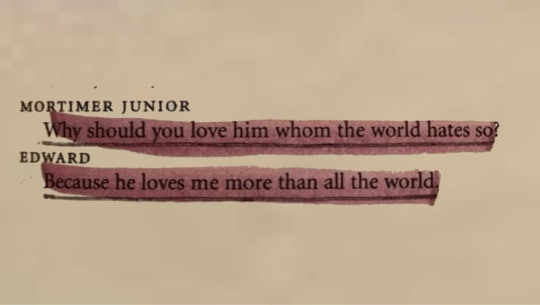
poems
still i write them. still i bring them into existence. how do i begin to explain 16.3 dearest as i am now, with you
excerpts from my diary (ft. my notes app)
march 1 march 12 notes app excerpt #053 an ode to my fallen comrade, my laptop may3rd. getting yourself out of a rut
chaptered works
pieces./ -- part one | part two | part three | part four | part five
‘a writer disconnected from the world / may only find themselves / by writing into it.’


F1 pieces
[🏎️] the cult side of f1 [🏎️] the growing cracks of formula one [🏎️] why daniel ricciardo really, really needs to well in australia [🏎️] thoughts had while marshalling a grand prix
film/music
after life / ricky gervais (2019)
personal essays
on mixtapes an open letter in defence of creative pursuit an open letter in celebration of creative pursuit some thoughts on kendrick lamar's recent disses
‘fanfiction is the self-indulgent reclaimation of art.’
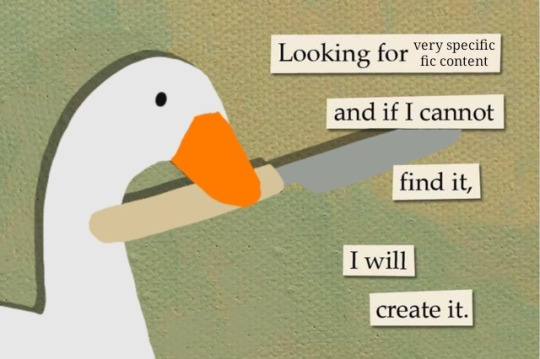

one-shots
[🏎️] antinal | cs55 [🏎️] stomaching you | mv33
multi-chaptered fics
[🏎️] pancakes / cs55, op81, cl16, mv33, dr3 [jjk] cross my heart / ryomen sukuna
#saintescuderia#writer#writers on tumblr#writer stuff#writing#writeblr#writers and poets#female writers#writerscommunity#creative writing#the tortured poets department#f1#f1 x reader#f1 meme#f1 fanfic#f1 imagine#f1 x you#f1 fic#formula 1#f1 memes#masterlist#masterpost#writer's life#writing list#fanfiction writing#fanfic writing#on writing#literary fiction#literary magazine#literature
35 notes
·
View notes
Text
How Goldman Sachs's "tax-loss harvesting" lets the ultra-rich rake in billions tax-free
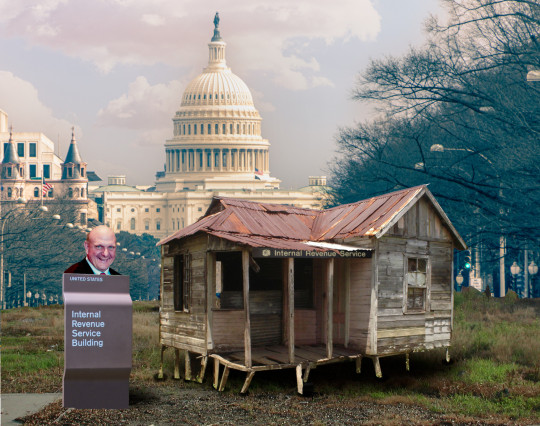
Tomorrow (Apr 25) I’ll be in San Diego for the launch of my new novel, Red Team Blues, at 7PM at Mysterious Galaxy Books, hosted by Sarah Gailey. Please come and say hi!
_,.-'~'-.,__,.-'~'-.,__,.-'~'-.,__,.-'~'-.,__,.-'~'-.,_
With the IRS Files, Propublica ripped away the veil of performative complexity disguising the scams that the ultra-rich use to amass billions and billions (and billions and billions) of dollars, paying next to no tax, or even no tax at all. Each scam is its own little shell game, a set of semantic and accounting tricks used to gussy up otherwise banal rip-offs.
If you'd like an essay-formatted version of this post to read or share, here's a link to it on pluralistic.net, my surveillance-free, ad-free, tracker-free blog:
https://pluralistic.net/2023/04/24/tax-loss-harvesting/#mego
The finance sector has a cute name for this kind of complexity: MEGO, which stands for "my eyes glaze over." If you're trying to rip off a mark, you just pad out the prospectus, make it so thick they decide there must be something good in there, the same way that any pile of shit that's sufficiently large must have a pony under it...somewhere.
Propublica's writers haven't merely confirmed just how little America's oligarchs pay in tax - they've also de-MEGO-ized each of these scams, like the way that Peter Thiel used the Roth IRA - a tax-shelter for middle-class earners to help save a few thousand dollars for retirement - to make $5 billion without paying one cent in tax:
https://pluralistic.net/2021/06/26/wax-rothful/#thiels-gambit
One of my favorite IRS Files reports described how Steve Ballmer - the billionaire ex-CEO of Microsoft - laundered vast fortunes into a state of tax-free grace by creating hundreds of millions in "losses" from his basketball team, the LA Clippers. Ballmer paid 12% tax on the $656 million he took out of the Clippers - while the players whose labor generated that fortune paid 30-40% on their earnings:
https://pluralistic.net/2021/07/08/tuyul-apps/#economic-substance-doctrine
That was Propublica's first Ballmer story, back in the summer of 2021. But they ran a followup last February that I missed (it came out while I was on a book tour in Australia), and it's wild: a tale of "loss harvesting," a form of fuckery involving Goldman Sachs that's depraved even by their own standards:
https://www.propublica.org/article/irs-files-taxes-wash-sales-goldman-sachs
Loss farming is a scam that was invented in the 1920s, whereupon it was promptly banned by Congress. But Goldman and other plutocrat Renfields have come up with tiny modern variations on this century-old con that the IRS is either unable or unwilling to address.
Here's how it works. Say you've got a stock portfolio where some of the stocks have gone up and others have gone down. You want to sell the high stocks and hang onto the low ones until they bounce back. But if you sell those stocks that have gone up, you have to "realize" the profit from them and pay 20% capital gains tax on them (capital gains tax is the tax you pay on money you get from owning things; it's much lower than income tax - the tax you pay for doing things).
But you pay tax on your net capital gains - the profits you've made minus the losses you've suffered. What if you sold those loser stocks at the same time? If you made a million on the good stocks and lost a million on the bad ones, your net income is zero - and so is your tax bill.
The problem is that selling stocks when they've gone down is a surefire way to go broke. Every investing book starts with this advice: you will be tempted to hold onto your stocks that are going up, because they might continue to go up. You'll be tempted to sell your stocks that are going down, because they may continue to go down. But if you do that, you'll only sell the stocks that have lost money, and never sell the stocks that have made money, and so you will lose everything.
Back when the pandemic started, your shares in movie theater chains were in the toilet, while your stock in tech companies shot through the roof. If you sold the tech stocks then and held onto your movie stocks and sold them now, you'd have cleaned up - today, tech stocks are down and movie theater stocks are up. But if you sold the cinema shares when they bottomed out, and held onto your tech stocks when they were peaking, you'd be busted today.
So selling your loser stocks to offset the gains from your winners is a bad idea. That's where loss-farming comes in: what if you sold your tech stocks at their peak, and sold your bottomed-out cinema stocks at the same time, but then bought the cinema stocks again, right away? That way you'd have the "loss" from selling the cinema stocks, but you'd still have the stocks.
That's called "wash trading," and Congress promptly banned it. If you've heard of wash-trading, it's probably something you picked up during the NFT bubble, which was a cesspit of illegal wash-trading. Remember all those eye-popping NFT sales? It was just grifters with multiple wallets, buying NFTs from themselves, making it seem like there was this huge, white-hot market for monkey JPEGs. Wash-trading.
Turns out that crypto really did democratize finance...fraud.
Wash-trading has been illegal for a century, but brokerages have invented modern variations on the theme that are legal-ish, and the most lucrative versions of these scams are only available to billionaires, through companies like Goldman Sachs.
There are a bunch of these variations, but they all boil down to this: there are lots of ways to sell an asset and buy it again, while making it look like you bought a different asset. Like, say you're invested in Chinese tech companies through an exchange-traded fund (ETF) that bundles together "all the Top Chinese tech stocks."
Maybe you bought this fund through Vanguard, the giant brokerage. Now, say Chinese stocks are way down, because the Chinese government is doing these waves of lockdowns on the factory cities. If you could sell those Chinese stocks now, you'd get a massive loss, enough to wipe out all the profits from all your good stocks.
But of course, China's going to figure out the lockdown situation eventually, so you don't want to actually get rid of those stocks right now, especially since they're worth so much less than you paid for them. So right after you sell your Vanguard Chinese tech ETF shares, you buy the same amount of Schwab's Chinese tech-stock ETF.
An ETF of "leading Chinese tech companies" is going to have basically the same companies' stock in it, no matter whether it's sold by Vanguard, State Street or Schwab. But as far as the IRS is concerned, this isn't a wash-trade, because you sold a thing called "Vanguard ETF" and bought a thing called "Schwab ETF" and these are different things (even if the main difference is the name on the wrapper, and not what's inside).
There's other ways to do this. For example, lots of companies have different "classes" of stock. Under Armour sells both Class A (voting) and Class C (nonvoting) stocks. Though voting stock is worth a little more than nonvoting stock, they both rise and fall together - if the Class A shares are up 10%, so are the Class C shares. So you can dump your Under Armour Class A's, buy Under Armour Class C's and own essentially the same amount of Under Armour stock - but as far as the IRS is concerned, you just sold your interest in one company and bought an interest in a different company, and you can take a big loss and write down your profits from other stock trades.
The IRS does prohibit wash-trading, but only in the narrowest sense. Brokerages are obliged to report trades in which a customer buys and sells exactly the same security, with the same unique ID (the CUSIP number), within 60 days. Beyond that, IRS guidance is extraordinarily wishy-washy, calling on filers to "consider all the facts and circumstances" of their transactions. Sure, that'll work.
Propublica found zero instances of the IRS targeting any of these trades, ever, for enforcement. That's especially true of the most egregious version of loss-harvesting, a special version that only the ultra-rich can take advantage of, called "direct indexing." You might know about "index funds," where a brokerage sells a single fund that tracks a broad index of stocks - for example, you can buy an S&P 500 index that goes up and down with the total value of the top 500 stocks in America.
Direct indexing is something that giant banks like Goldman Sachs offer to their very richest clients. The brokerage buys a mix of stocks that are likely to track the whole index, and puts those shares directly into the client's account. Rather than owning shares in a fund that owns the stocks, you own the stocks directly. That means that when you want to harvest some losses, you can sell just a few of the stocks in the index, rather than your shares in the whole fund.
Here's how that works. In 2017, the US index was up 20%; global indexes were up even more. Steve Ballmer made a bundle. But Goldman Sachs, acting on Ballmer's behalf, sold s few of the stocks in the portfolio and harvested a $100,000,000 loss, that Ballmer could use to trick the IRS into treating his massive profits as though he'd made very little taxable income.
Goldman uses a whole range of tricks to keep billionaires like Ballmer in a lower tax-bracket than the janitors who clean the floors after his team's games. They not only buy and sell different classes of stock in companies like Discovery and Fox; they also buy and sell the same company's stock in different countries. For example, they sold Ballmer's shares in Shell in one country, and then immediately bought the same amount of shares in another country. The IRS doesn't treat this as a wash-trade, despite the fact that the shares have the same value, and, indeed, companies like Shell routinely merge their overseas and domestic shares with no change in valuation.
Thanks to Goldman's ruses - and the IRS's willingness to accept them - Ballmer's wealth has swollen to grotesque proportions. He generated $579 million in losses from 2014-18, and as a result, got to keep at least $138m that he'd have otherwise had to pay to the IRS.
Goldman's not the only one in on this game: Iconiq Captial - a firm that also offers marriage partner scouting for its richest clients - has $13.2 billion under management on behalf of just 337 people. Among those high-rollers: Mark Zuckerberg, whose $88m in gains from Iconiq investments were offset by $34m in imaginary losses that the company manufactured with wash-trades.
In theory, the simplest form of wash-trading - selling your Vanguard China fund and buying a Schwab China fund - is available to any investor. Leaving aside the fact that the top 1% of Americans own most of the stock, this is still a deceptive proposition. This kind of wash-trading only benefits investors who hold their shares outside of a sheltered retirement account, which is a vanishing minority indeed.
Instead, the primary beneficiaries of this activity are the usual suspects: convicted monopolists like Ballmer, or useless scions of wealthy families, like the kids of Walmart founder Sam Walton, who emerged into this world through very lucky orifices and are thus effectively exempt from the need to work or pay tax for life.
Jim Walton is Sam Walton's youngest orifice-lottery-winner. Young Jim saw a $10 billion increase in his wealth from 2014-18, making him the tenth richest person in America. Thanks to wash-trading, he declared only $111 million of that $10 billion on his taxes, and paid $0.00 in tax on that $10 billion gains.
One way that the rich are especially well-situated to exploit loss-harvesting is in converting short-term gains - which are taxed at 40% - into long-term gains, which are taxed at 20%. For people who make a lot of money buying and selling shares as pure speculation, flipping them in less than a year, wash-trading can create the appearance of long-term holdings. Analyzing their trove of leaked IRS files, Propublica showed that Americans who report over $10 million in income almost never report short-term gains. Instead, two-thirds of the richest Americans report short-term losses.
One fascinating wrinkle is that rich people may not even know this is going on. Whatsapp co-founder Brian Acton, managed to "lose" $2.9 million when he sold $17 million in shares - the same day he bought $17 million in shares in nearly the same companies from another brokerage. Then, a few months later, he reversed those transactions, selling his new fund and buying the old one and harvesting another $600,000 in losses.
When Propublica asked Acton about this, he told them he was "not really aware of any events like that...Broadly my wealth is managed by a wealth management firm and they manage all the day to day transactions."
This is completely believable and consistent with the extraordinarily frank account of how elite money-management works that Abigail Disney described in 2021, where the ultra-rich are insulated from the scams, tricks and wheezes that lawyers and accountants dream up to keep their fortunes steadily mounting with no action needed on their part:
https://pluralistic.net/2021/06/19/dynastic-wealth/#caste
Could the IRS block this kind of wash-trading? Yes, but they'd need action from Congress. The most effective way to do this would be to force shareholders to "mark to market" the value of their holdings, taxing them each year on the fluctuations in their portfolio.
Propublica notes that this is incredibly unlikely to happen, though. As an alternative, Congress could change the rule that blocks investors from claiming losses when they buy and sell "substantially identical" shares with a rule that applies to "substantially similar" stocks. This proposal comes from Columbia Law's David Schizer, who says the law "ought to be updated to reflect how people invest today instead of how they invested 100 years ago."
But for any of that to have an effect, the IRS would have to change its auditing and enforcement practices, which currently see low-income earners (who can't afford fancy tax-lawyers who'll tie up the IRS for months or years) being disproportionately targeted, while America's super-rich, ultra-rich, and stupid-rich are allowed to submit the most hilariously, obviously fictional returns and get away with it.
_,.-'~'-.,__,.-'~'-.,__,.-'~'-.,__,.-'~'-.,__,.-'~'-.,_
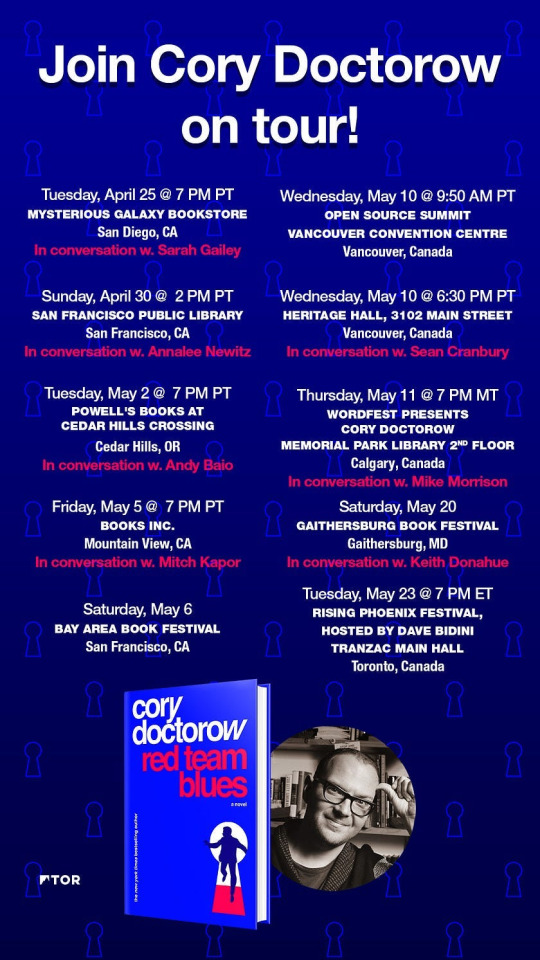
Catch me on tour with Red Team Blues in San Diego, Burbank, Mountain View, Berkeley, San Francisco, Portland, Vancouver, Calgary, Toronto, DC, Gaithersburg, Oxford, Hay, Manchester, Nottingham, London, and Berlin!
_,.-'~'-.,__,.-'~'-.,__,.-'~'-.,__,.-'~'-.,__,.-'~'-.,_
[Image ID: A dilapidated shack. A sign reading 'Internal Revenue Service Building' stands next to it. From its eaves depends another sign, reading 'Internal Revenue Service' and bearing the IRS logo. From the window of the shack beams the grinning face of billionaire Steve Ballmer. Behind the shack is a DC avenue terminating in the Capitol Dome.]
_,.-'~'-.,__,.-'~'-.,__,.-'~'-.,__,.-'~'-.,__,.-'~'-.,_
Image: Matthew Bisanz (modified) https://commons.wikimedia.org/wiki/File:NYC_IRS_office_by_Matthew_Bisanz.JPG
CC BY-SA 3.0 https://creativecommons.org/licenses/by-sa/3.0/deed.en
--
Ted Eytan (modified) https://commons.wikimedia.org/wiki/File:2021.02.07_DC_Street,_Washington,_DC_USA_038_13205-Edit_%2850920473547%29.jpg
CC BY-SA 2.0 https://creativecommons.org/licenses/by-sa/2.0/deed.en
--
Bart Everson (modified) https://www.flickr.com/photos/editor/1287341637
Eric Garcetti (modified) https://commons.wikimedia.org/wiki/File:Steve_Ballmer_2014.jpg
CC BY 2.0 https://creativecommons.org/licenses/by/2.0/
#pluralistic#paper losses#direct indexing#tax-loss harvesting#steve ballmer#propublica#irs files#the rich are different from you and me#mego#wash trading#tax evasion#goldman sachs#vampire squid#mark zuckerberg
88 notes
·
View notes
Text
There's been AI covers of songs going around for ages on tiktok (ones I'm referring to in this post are covers by 'Arthur Morgan' from Red Dead 2, however there are hundreds of others, be they characters from shows or actual musical artists) and they've never sat fuckin right with me.
With the strike going on, and cooperation's saying they're going to start using AI generated actors (their body scans AND voices), these tiktoks are like a genuine problem now.
Roger Clark, then man who voiced Arthur Morgan in the video game has spoken about it now, and noted how harmful it is, saying he "doesn't get a kick out of it at all" and that it is "Plagiarism Software". These AI 'Covers' ARE Plagiarism.
If you'd like the definition of the word, Oxford Dictionary states it's "Presenting work or ideas from another source as your own, with or without consent of the original author (Or in the case of AI "original creator" = original writer, actor, artist, etc)". That means ALL your AI art, ALL your AI writing, ALL those AI character chat bots you use ALL the AI song covers, ALL of them being GENERATED by an AI WITHOUT CONCENT FROM THE ORIGINAL CREATORS are Plagiarized Works.
Now, because so many people think they can just use AI and not have to worry about the consequences (because for some reason, they think there is none), here's what can happen if you're caught using Plagiarized works; This Scribblr article states what can happen if you use plagiarized works in a university, college or high school environment, which is becoming a problem with AI generated essays, etc. (It also Included a section on why it's so serious - a section easily transferred into AI generated Fanfiction). best case scenario is that you get an automatic zero score. Worst case, expulsion. Here in Australia, according this article by Criminal Defense Lawyers Australia, under our copywrite law, the penalty for plagiarism can be up to 5 years imprisonment, and/or a 600,000 AUD fine.
There's many, many other articles one could comb though, above is only two, and while neither of them directly mention AI works, the idea IS the same. AI works are copywrite. AI works are plagiarism. AI works are dishonest, and they are ruining the creative field in an extremely brutal and heartless way. There are people here who are being stolen from - not just in creative spaces like fandom or art - but their very jobs, their livelihoods (show writers, actors, musicians).
Those using AI are being unethical, and selfish, and I know they will be stubborn too. But if you use AI you are supporting it. If you're supporting it, then you are willingly sitting and watching people die, slowly. And I'm sorry (not really), but people who are like that don't deserve to keep their toys.
#fuck ai#support the wga#support the sag#wga strike#sag strike#ai generated#ai chatbot#ai art#ai fanfic#ai fanart#ai music
28 notes
·
View notes
Note
Hi Merry! I am the anon who studied your story in class. Staying on anon to Not Doxx Myself but I go to the University of Sydney and the class was called Global Literatures in English (would highly recommend anyone who goes to USyd and has the opportunity to take that class does so, even just as an elective). Every week-fortnight we would study a different work or set of works written in English from a particular country, with a focus on African and South Asian literatures. Lots of questions on what globalisation means for storytelling and culture, what it means to write a story in English as opposed to your native language (really great articles from Chinua Achebe and Ngũgĩ wa Thiongʼo arguing opposite points for the merits/disadvantages of writing African literature in English), how literatures fit into the canon and history of their respective countries and what that might mean for representing those countries to the world, that sort of thing. The week before we looked at your story we studied NoViolet Bulawayo's "Glory", our final essay is a comparative between "Glory" and any of the other texts we've looked at in the last few weeks. It's a great class, I've been exposed to so much fantastic literature because of it, but also kind of annoying, because it's only one or two weeks per work, which means we only get a really quick overview of the country/culture/history/context/literary predecessors of whatever work and writer we're looking at, which was something that annoyed me particularly in the week on Speculative Australias having read the whole "This All Come Back Now" anthology last year, because I KNEW there was a lot more to go into than what we were able to talk about. Anyway you only asked what uni I went to and this anon is long enough as it is, I just got very excited when I saw your name on the reading list bc I was like "!!!!!! I listen to their gayass podcast!!!!!! I follow them on Tumblr!!!! I know this one!!!!!".
omg this is just so cool and this class sounds awesome! thank you so much for telling me and for gassing up gayv club to your class 🥺💕 I truly hope you stay well and wish you all the very best for your studies. xx
19 notes
·
View notes
Text

Dame Mary Jean Gilmore DBE (née Cameron; 16 August 1865 – 3 December 1962) was an Australian writer and journalist known for her prolific contributions to Australian literature and the broader national discourse. She wrote both prose and poetry.
Gilmore was born in rural New South Wales, and spent her childhood in and around the Riverina, living both in small bush settlements and in larger country towns like Wagga Wagga. Gilmore qualified as a schoolteacher at the age of 16, and after a period in the country was posted to Sydney. She involved herself with the burgeoning labour movement and the Bulletin School of radical nationalists, and she also became a devotee of the utopian socialist views of William Lane. In 1893, Gilmore and 200 others followed Lane to Paraguay, where they formed the New Australia Colony. She started a family there, but the colony did not live up to expectations and they returned to Australia in 1902.
Drawing on her connections in Sydney, Gilmore found work with The Australian Worker as the editor of its women's section, a position she held from 1908 to 1931. She also wrote for a variety of other publications, including The Bulletin and The Sydney Morning Herald, becoming known as a campaigner for the welfare of the disadvantaged. Gilmore's first volume of poetry was brought out in 1910; she published prolifically for the rest of her life, mainly poetry but also memoirs and collections of essays. She wrote on a variety of themes, although the public imagination was particularly captured by her evocative views of country life. Her best known work is "No Foe Shall Gather Our Harvest", which served as a morale booster during World War II.
Gilmore's greatest recognition came in later life. She was the doyenne of the Sydney literary world, and became something of a national icon, making frequent appearances in the new media of radio and television. Gilmore maintained her prodigious output into old age, publishing her last book of verse in 1954, aged 89. Two years earlier she had begun writing a new column for the Tribune (the official newspaper of the Communist Party), which she continued for almost a decade. Gilmore died at the age of 97 and was accorded a state funeral, a rare honour for a writer. She has featured on the reverse of the Australian ten-dollar note since 1993.
2 notes
·
View notes
Text
I was going to let this go, but I can't stand it anymore.
What is UP with Evilive and Australia???
(This is a joke btw and not at all serious I love this show)
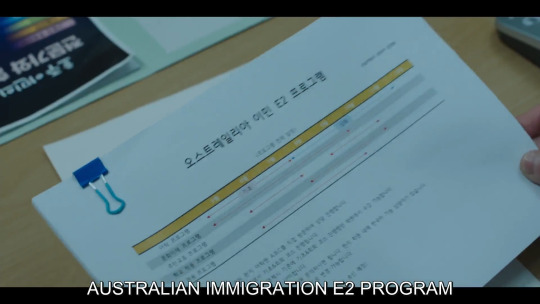
Okay, so I haven't heard of an 'E2' class Australian visa. No big deal. But it made me curious as to what it was, so I briefly looked for information on what visas Australia had in 2008 and...I couldn't find anything referencing an E2 visa for someone emigrating from South Korea to Australia. What I can find is an E2 class visa for someone emigrating from Australia to South Korea. I can also find an E2 visa for someone emigrating to the US.
So: 1. I'm dumb and missed something. 2. The writers were familiar with E2 visas because South Korea has them, and the US has them, so like...who would notice?
(Side note: They are emigrating to Sydney!!! Whoo NSW representation!!!)
But this...this was what broke me:
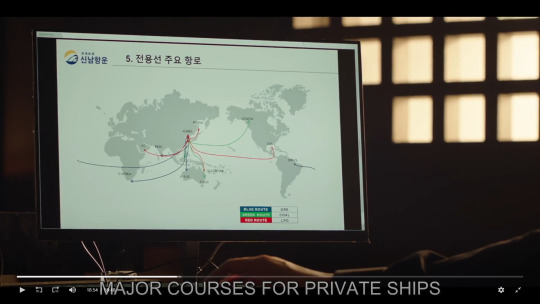

???
??????
Okay. So, you're exporting to...Sydney? Maybe? Sure, lets go with that because literally nothing else makes sense (except Newcastle??? Which has a major port, apparently). And then bypassing Brisbane to ship to...Gladstone, Queensland? Okay, sure. I googled it and they seem to...export a lot of stuff, and have a major port there, so maybe they import too?
And then...what.
Where even IS that in WA (Western Australia)???
Oh! I looked it up and it's most likely Port Hedland, which is apparently another major port! The largest bulk...export...port in the world, supposedly. But maybe they import as well? (Okay, so it DOES import, but wow the difference between the import and export numbers is...a lot. Wikipedia even has 2008 statistics. Neat!)
Wow, the attention to detail sure is great in this show, but...uh...
Why???? Coal????
Why are you shipping our major export, that we export to you, our #3 export market in 2008...back to us?????
Like...it's just about the only thing we do. We export coal. I learned about our coal industry in school. Our richest person is a billonaire mining magnate. One of our former Prime Ministers became a joke for saying, "Coal is good for humanity." And then my university lecturer for Environmental Law got so pissed she put the quote in our final exam as an essay question.
But I digress.
I still looked it up to see if we import coal and export it, and the answer is...no. We do not.
LNG and ORE are also unlikely, as they're some of our other major exports (well, Iron Ore is). I can't find a lot of data from 2008 specifically, but the 2016-2019 data isn't good (compare imports on pages 52-53 with exports pages 54-56) and it seems recently (2021-2022) our major imports from South Korea included refined petroleum and cars. Not Ore and LNG. However, despite being the #1 exporter in the world for Iron Ore in 2021, we were the #42 importer of it too, so that one's possible imo. LNG though? Not as likely as ORE, because we export it and seem to supply it domestically, but way more likely than Coal.
Conclusion?
For a scene that barely lasts 2 seconds, the level of detail is crazy. I'm genuinely very impressed.
Also. It is hilarious that Seo Do Young was planning to sell us coal. The end.
#evilive#evillive#biography of a villain#PS it's VEEEERY funny that Han Dong Soo's arsonist mother#was going to come to Australia of all places#bushfire nation of the world#AND IN 2008#like my guy you should be soooo glad you stayed in South Korea actually#PPS I couldn't figure out was 'WA US' and 'EA US' meant#and I JUST realised it means 'West Australia' and 'East Australia'#West Australia and East Australia and GLADSTONE#I'm deceased
9 notes
·
View notes
Text

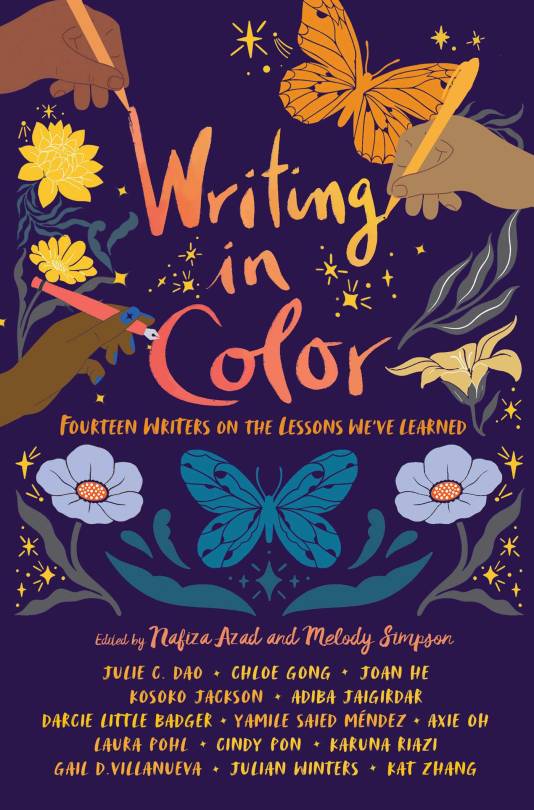

We have three books on our radar this week! Which ones are you interested in?
Forty Words for Love by Aisha Saeed Kokila
In this luminous young adult novel by New York Times bestselling author Aisha Saeed, two teen protagonists grow from friends to something more in the aftermath of a tragedy in their magical town. Moonlight Bay is a magical place—or it was once. After a tragic death mars the town, the pink and lavender waters in the bay turn gray, and the forest that was a refuge for newcomers becomes a scourge to the townspeople. Almost overnight, the entire town seems devoid of life and energy. The tourists have stopped coming. And the people in the town are struggling. This includes the two teens at the heart of our story: Yasmine and Rafay. Yasmine is a child of the town, and her parents are trying and failing to make ends meet. Rafay is an immigrant, a child of Willow Forest. The forest of Moonlight Bay was where people from Rafay’s community relocated when their home was destroyed. Except Moonlight Bay is no longer a welcoming refuge, and tensions between the townspeople and his people are growing. Yasmine and Rafay have been friends since Rafay first arrived, nearly ten years ago. As they've gotten older, their friendship has blossomed. Not that they would ever act on these feelings. The forest elders have long warned that falling in love with "outsiders" will lead to devastating consequences for anyone from Willow Forest. But is this actually true? Can Yasmine and Rafay find a way to be together despite it all? -- Cover image and summary via Goodreads
Writing in Color: The Lessons We've Learned edited by Nafiza Azad and Melody Simpson Margaret K. McElderry Books
So, you’re thinking of writing a book. Or, maybe you’ve written one, and are wondering what to do with it. What does it take to publish a novel, or even a short story? If you’re a writer of color, these questions might multiply; after all, there’s a lot of writing advice out there, and it can be hard to know how much of it really applies to your own experiences. If any of this sounds like you, you’re in the right place: this collection of essays, written exclusively by authors of color, is here to encourage and empower writers of all ages and backgrounds to find their voice as they put pen to page. Perhaps you’re just getting started. Here you’ll find a whole toolkit of advice from bestselling and award-winning authors for focusing on an idea, landing on a point of view, and learning which rules were meant to be broken. Or perhaps you have questions about everything beyond the first draft: what is it really like being a published author? These writers demystify the process, sharing personal stories as they forged their own path to publication, and specifically from their perspectives as author of color. Every writer has a different journey. Maybe yours has already started. Or maybe it begins right here. Contributors include: Julie C. Dao, Chloe Gong, Joan He, Kosoko Jackson, Adiba Jaigirdar, Darcie Little Badger, Yamile Saied Mendez, Axie Oh, Laura Pohl, Cindy Pon, Karuna Riazi, Gail D. Villanueva, Julian Winters, and Kat Zhang. -- Cover image and summary via Goodreads
Actually Super by Adi Alsaid Knopf Books for Young Readers
A globetrotting novel that takes a determined teen from Japan to Australia and to Argentina and Mexico on a quest to prove that humanity is more good than bad from the author of Let’s Get Lost and Before Takeoff. Isabel is having an existential crisis. She’s three years into high school, and everything she’s learned has only shaken her faith in humanity. Late one night, she finds herself drawn to a niche corner of the internet—a forum whose members believe firmly in one that there are indeed people out in the world quietly performing impossible acts of heroism. You might even call them supers . No, not in the comic book sense—these are real people, just like each of us, but who happen to have a power or two. If Isabel can find them, she reasons, she might be able to prove to herself that humanity is more good than bad. So, the day she turns 18, she sets off on a journey that will take her from Japan to Australia, and from Argentina to Mexico, with many stops along the way. She longs to prove one— just one— super exists to restore her hope for the future. Will she find what she’s looking for? And how will she know when—if—she does? -- Cover image and summary via Goodreads
10 notes
·
View notes
Text
Writer Q&A

finally, a picrew with some stanley representation (my forehead wrinkle)
yoinking probably ancient open tag from @words-after-midnight because NO MORE WRITING my mind is weary i am on strike i am kicking my little feets i am--
ahem. an activity.
RULES: Use this picrew to make yourself and answer the questions!
Three fun facts about me:
Dean Wax is my pseudonym because I was originally using it to explore a male identity online because I thought i might be trans, turns out: not exactly
i own an absurd amount of Eye objects. pottery, pillows, earrings, woodcuts, rings, cross stitch - you name it. i just think they're neat
have personally pushed well over 300 trolleys back to the fukken shops from whence they came (hate litter so much)
Favourite season: Djilba babyyyyy and if you don't know what the HELL that means, you can brush up on the Noongar seasons here
Continent where I live: Australia (the left bit)
How I spend my time: more video games than you can possibly imagine, usually while listening to video essays. I also have a keen interest in cooking and pantry resource management. apart from being an avid audience member at my local independent theatre, once a year i go wizard bananas apeshit and see several dozen shows at my city's annual Fringe Festival. I read less than you'd expect given how much I write but when I do, it's often poetry or graphic novels. (god i fucking... love all art, so much. argh)
Are you published?: In tech sector operational copywriting? Immensely. But when it comes to my writing writing, I have absolutely no interest in conventional or self-publishing and I post my work on AO3 specifically because it is non-profit, does not exploit writers, and embraces creative freedom.
introvert/extrovert: probably introverted because i'm so fukken cerebral, but i'm also, like, a veteran AFAB autistic so I'm very good at social masking. whatever it takes
favorite meal: i'd smash an Uncle Gina's Chicken Wrap any day of the week. I have recorded the recipe quite unnecessarily but basically it's over-seasoned cajun chicken to spice up a wrap of shredded raw green cabbage and grated carrot with Gochujang and Kewpie mayo. namnamnamnamnamnam
5 notes
·
View notes